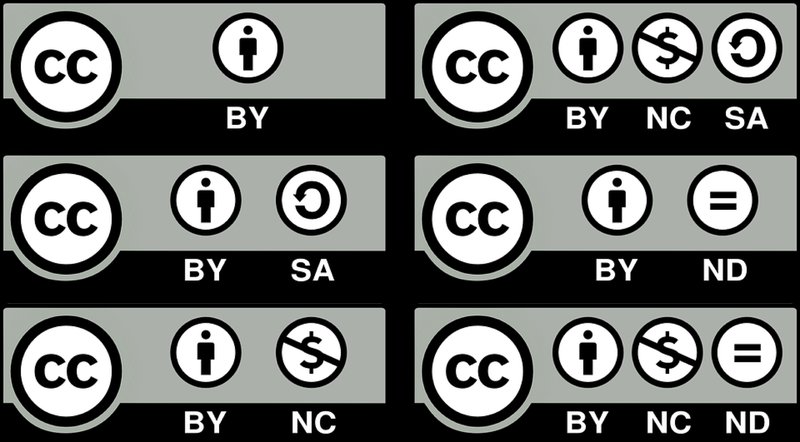We have only just started to settle into the internet age. There are many advantages which come with the internet – we can share art, music, pictures, and ideas at will. Are there any limits to this free sharing?
This is where we have to make a distinction between copyrighted content and content that is available for the public and contributed by the public. While we have copyrights for those who seek to protect their creations, we have creative commons licenses for those who seek to make their content available in some capacity for public use. This content comes with creative commons (CC) licenses. Which takes us back to the question, “What are creative commons licenses?”
What are Creative Commons Licenses?
Creative Commons is an international non-profit organization which has a worldwide reach largely due to its affiliates who have a truly global presence. The system is such that it allows its users to add a creative commons license to existing copyrighted material which virtually determines the manner, the extent, and the purpose for which the licensed material could be put to use. The material that can be licensed and used includes pictures, music, and video clips. Materials eligible for use under creative commons are marked by a ‘CC’ symbol. IP lawyers in Edmonton state copyright infringements are common due to not grasping the nature of specific licenses that are applicable.
The Types of Creative Commons Licenses
Six types of creative commons licenses exist. These licenses determine the nature in which the content is to be used.
- Attribution
- Includes material meant for commercial use
- Allows you to redistribute and tweak or alter the original material
- Crediting the source of original material is mandatory
Attribution-ShareAlike
- Includes material meant for commercial use
- Allows you to alter or tweak the original material
- Crediting the source of original material and licensing your new material under the same terms is mandatory
Attribution-NoDerivs
- Includes material meant for commercial use
- Allows redistribution but does not allow you to alter or tweak the original material
- Crediting the course of original material is mandatory
Attribution-NonCommercial
- Does not allow material for commercial use
- Allows you to alter or tweak the original material
- Crediting the original source of the material is mandatory; however, licensing your new material on the same terms is not mandatory
Attribution-NonCommercial-NoDerivs
- Does not allow material for commercial use
- Allows you to alter or tweak the original material
- Crediting the source of original material and licensing your new material under the same terms is mandatory
Attribution-NonCommercial-ShareAlike
- Does not allow material for commercial use
- Allows redistribution but does not allow you to alter or tweak the original material
- Crediting the original source of original material is mandatory
Copyright infringements are very common in the case of material protected by creative commons. Reaching out to IP lawyers and agents in Edmonton would provide to you the representation that you need for intellectual property litigation to safeguard your interests.

